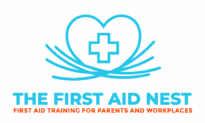Feeding Baby When a Family Member Has Food Allergies

Got Allergies in the Family? Here’s What You Need to Know Before Starting Solids
Introducing solids is a big milestone—but it can feel especially stressful if food allergies already run in your family. Whether it’s your partner with a peanut allergy or your toddler with eczema, it’s only natural to worry:
“What if my baby reacts?”
“Should I delay allergens, or avoid them altogether?”
The good news? Current research is clear: introducing common allergens early and safely can help reduce your baby’s risk of developing allergies, even if there’s a family history.
Let’s walk through exactly how to approach feeding when there’s a known allergy risk at home.
Does a Family History of Allergies Increase My Baby’s Risk?
Yes, but it doesn’t guarantee your baby will have allergies too.
Your baby is at higher risk of developing food allergies if:
-
They have a parent or sibling with a diagnosed allergy (food, eczema, asthma, or hay fever)
-
They already have eczema themselves
That said, many high-risk babies don’t develop allergies, and there’s plenty you can do to support their immune system from the start.
Introducing Allergenic Foods: What the Latest Guidelines Say
The Australasian Society of Clinical Immunology and Allergy (ASCIA) recommends:
-
Start solids around 6 months (but not before 4 months), when your baby is developmentally ready
-
Introduce common allergy-causing foods early and regularly while continuing breastfeeding if possible
-
These foods include:
🥜 Peanuts
🥚 Eggs
🐟 Fish
🦐 Shellfish
🥛 Cow’s milk (in cooked/baked form)
🌾 Wheat
🌰 Tree nuts (as pastes or powders)
🍞 Soy
🫘 Sesame
But What If My Older Child (or Partner) Has a Food Allergy?
It’s understandable to feel hesitant, but here’s what matters:
-
Your baby’s immune system is unique
-
Avoiding allergens can increase the risk of developing an allergy later
-
You can still introduce allergenic foods safely at home with some simple precautions

How to Introduce Allergens Safely in a High-Risk Family
Here’s a step-by-step approach:
✅ 1. Choose a Good Time
-
Pick a day when your baby is well (no colds, teething, or vaccinations)
-
Introduce new allergens early in the day, so you can monitor them
✅ 2. Start with a Tiny Amount
-
Mix a small amount of the new allergen into familiar foods (e.g. peanut butter into porridge or smooth egg into mashed potato)
✅ 3. Watch for Reactions
-
Mild reactions: rash, hives, vomiting
-
Severe reactions: swelling of face/lips, difficulty breathing, collapse, call 000 immediately
💡 Most reactions happen within minutes to two hours after eating a food
✅ 4. Keep it Going
-
Once tolerated, offer the food at least twice a week
-
Regular exposure is key to maintaining tolerance
When to Get Specialist Support
You don’t need to see an allergy specialist before starting solids unless:
-
Your baby has had a reaction before
-
They have moderate to severe eczema
-
You’re extremely anxious and would prefer a supervised introduction
A paediatrician, GP, or allergy nurse can help guide you through this safely.

Real Talk from a Paediatric Allergy Nurse
Many parents I work with are terrified to introduce peanuts or eggs, especially when a sibling has had a reaction. But delaying doesn’t protect your baby. In fact, it may do the opposite.
That’s why I created The NEST Method, a simple, step-by-step guide for parents navigating feeding, allergens, and choking safety, all in one place. Because you deserve clarity, not confusion.
Want more? We’ve got you covered…
Our Baby First Aid Courses
 Learn Baby & Child First Aid Online – Anytime, Anywhere
Learn Baby & Child First Aid Online – Anytime, Anywhere
At The First Aid Nest, we make it easy for busy parents to learn life-saving skills from the comfort of home.
Our online baby first aid courses are designed by a children’s nurse and allergy specialist, focusing on the things parents worry about most:





Our First Aid Certificate Courses
We run most of the popular first aid courses Australia wide. HLTAID011 Provide First Aid, HLTAID009 Provide CPR, HLTAID012 Provide First Aid in an Education & Care Setting, Mental Health first aid and CPR/LVR to name a few.
Book your public spot online or contact us if you have a group of 5+ people for onsite training.
Here are some other resources you may enjoy!
FREE GUIDE: Essential Weaning Bundle (Choking first aid Guide, Top 9 Allergy Foods Guide & Allergy Food Tracker!)
FREE Masterclass: Safe & Simple: Prep Foods To Avoid Choking & Allergies
FREE Workplace Emergency Preparedness Plan: Grab this at the bottom of every page!
Follow for baby & child first aid and allergy info and tips on Instagram & TikTok, all @thenestcpr
